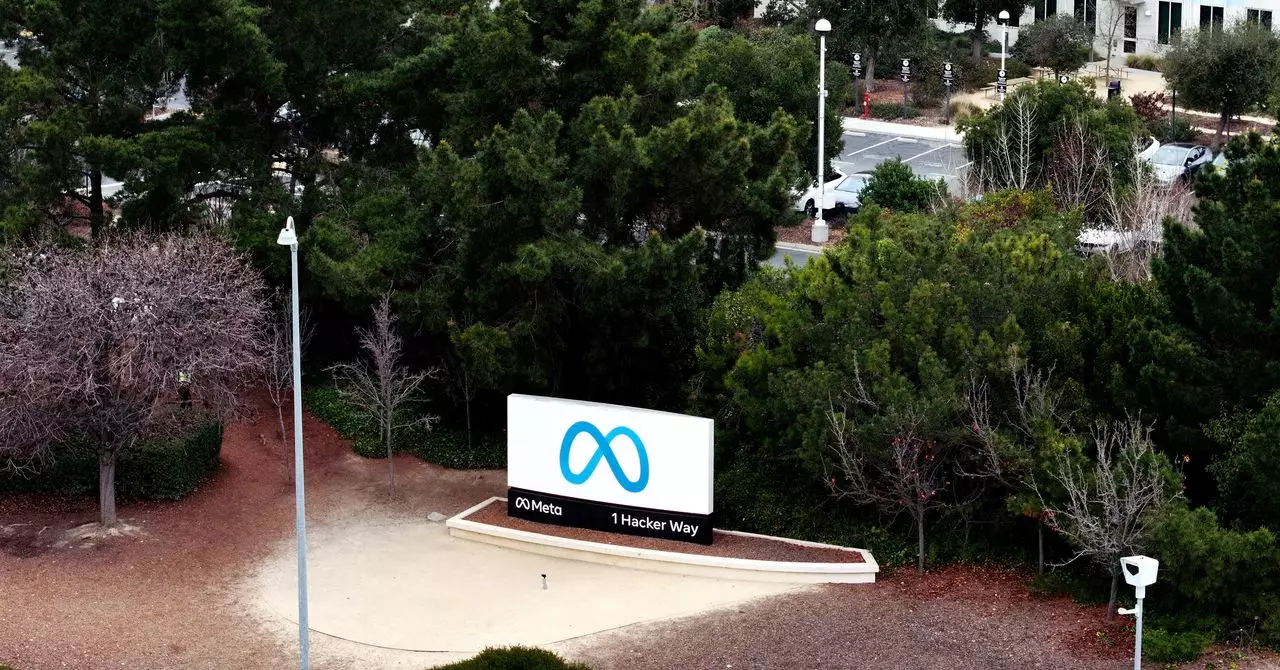In January 2023, Meta Platforms Inc. stunned the digital world by announcing an ambitious shift in its approach to content moderation across Facebook and Instagram. The tech giant proposed to minimize its enforcement efforts, partially attributing this adjustment to the principles of “free expression.” While the intent may seem noble on the surface, the implications of this shift raise critical questions about the safety, inclusivity, and integrity of online platforms that cater to billions globally.
The inaugural Community Standards Enforcement Report, released shortly after this announcement, revealed a staggering drop in content removals—nearly one-third less than the previous quarter, a reduction marking approximately 1.6 billion removals instead of just under 2.4 billion. This trend points to a remarkable pivot, yet it begs an essential inquiry: Are we truly fostering an environment of free expression, or are we occasionally veering dangerously close to endorsing harmful discourse?
Balancing Free Expression Against Offensive Content
Meta’s assertion that fewer erroneous content removals have led to a richer user experience might resonate with proponents of free speech. The company claims that its adjustment saw a significant reduction in appeals and restored posts, suggesting a more efficient moderation system overall. However, ‘efficiency’ should not come at the cost of safety and respect, especially in a space known for its diverse user base.
With reductions in aggressive crackdowns on categories like hate speech and child endangerment, critics are right to remind us of the ethical boundaries in content moderation. The loosened rules permit forms of expression that can border on hate against marginalized groups, raising concerns about the real meaning of “supporting free expression.” Are we merely endorsing harmful rhetoric under the guise of freedom?
Furthermore, as Meta’s policies evolve, varying interpretations of “mainstream discourse” should be scrutinized. For instance, allowing language that could be perceived as derogatory towards transgender individuals or immigrants showcases an alarming disregard for societal nuances. Critics argue that by axiomatizing such expressions, platforms effectively create an environment where hateful ideologies can thrive unchecked.
The Role of Automation in Moderation
A fundamental aspect of Meta’s shift has been its reduced reliance on automated systems for content moderation, a decision that reveals a critical paradox. While automation can sometimes lead to high-error rates and undue censorship, stepping back from technology does not automatically translate to responsible moderation practices. The fact that automated removals for bullying and harassment dropped significantly in comparison to hate speech indicates that while errors can occur, consistent scrutiny is necessary for maintaining a safe online environment.
Meta acknowledged that their previous high volume of automated removals often led to backlash due to inaccuracies—many genuine posts were unjustly flagged. Nevertheless, the resolution to curtail automated enforcement across various categories suggests a troublesome gamble with user security. Balancing algorithmic efficiency with human oversight is crucial as technology advances, but a complete withdrawal raises significant concerns about accountability.
Understanding the Wider Implications
As Meta’s policies continue to unfold amidst an unpredictable political landscape—further complicated by the return of Donald Trump to the presidential arena—one cannot ignore the social ramifications of such decisions. The very fabric of discourse on social media platforms is being redrawn, and as a result, we must critically interrogate whose voices are amplified and whose damages persist unchecked.
In this age of information, where social media platforms become a primary source of news and interaction for millions, the ramifications of content moderation policies extend beyond mere numbers. They infiltrate the very core of democratic engagement, shaping public discourse, and affecting marginalized communities disproportionately.
With these shifts, Meta not only redefines what is deemed acceptable online but also influences broader cultural narratives. As we navigate this brave new world of digital communication, vigilance in evaluating these practices becomes more crucial than ever, to ensure that the quest for free expression does not evolve into a pathway for normalizing hate or harm.

